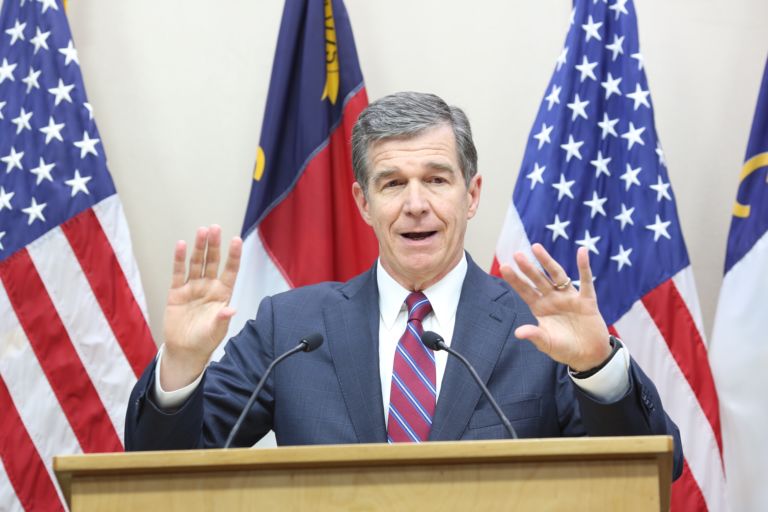- The Professional Educator Preparation and Standards Commission (PEPSC) unveiled an initial proposal to redesign North Carolina’s teacher salary system
- The PEPSC proposal offers a performance-based, seven-tier system that would require teachers to demonstrate effectiveness using quantitative and qualitative measures
- While North Carolina needs a teacher pay system that rewards excellence and is focused on keeping the very best teachers in the classroom for as long as possible, implementing the PEPSC plan would necessitate greater centralization and bureaucratization, possibly stifling local innovation and competitiveness
This week, the Professional Educator Preparation and Standards Commission (PEPSC), a commission created by legislation in 2017 to advise the State Board of Education on establishing high standards for educators, presented a comprehensive teacher pay proposal to the North Carolina State Board of Education. The plan to overhaul North Carolina’s outdated teacher salary system deserves serious consideration from education officials and policymakers.
It is not perfect, and it is far from a done deal. But it would align North Carolina’s teaching profession with other professions that employ performance-based career advancement and compensation models.
Teacher Salaries in North Carolina
There is little relationship between the performance of public school employees and their compensation. Both excellent and subpar teachers receive the same pay, based almost exclusively on years of service and certain credentials, which makes them unique among professions. Critics say such a pay system lacks the proper incentives to produce higher quality results.
Researchers and practitioners have acknowledged the weaknesses of the current experience- and credential-based salary schedule for years. Like most statewide salary schedules, North Carolina’s system does not account for educator performance or create pathways to career advancement within the teaching profession. That said, a series of small-scale initiatives known as Advanced Teaching Roles offers leadership roles and higher pay for outstanding educators. North Carolina remains far behind the handful of states that meet the National Council on Teacher Quality’s goal of ensuring that effectiveness is a factor in teachers’ compensation.
The North Carolina Teacher of the Year makes the same base salary as every other teacher with the same experience and credentials.
In the end, it is mindboggling that the North Carolina Teacher of the Year makes the same base salary as every other teacher with the same experience and credentials. The guarantee of annual experience-based pay increases incentivizes low-performers to remain in the classroom while pushing higher-performing teachers into administrative and noninstructional roles. The authors of the PEPSC proposal are attempting to change the incentive structures to drive statewide systematic improvement.
The PEPSC Proposal
The PEPSC proposal offers a performance-based system with seven tiers ranging from an apprentice teacher with a proposed starting salary of $30,000 per year to an advanced teacher with a proposed starting salary of $72,000 per year. The first four tiers focus on entry-level certifications for teachers new to the profession. Once the educator completes the requisite academic content and pedagogy testing requirements, they progress to the professional-level certification and advanced credential tiers that predicate advancement on the teacher’s ability to demonstrate effective teaching instruction for a minimum of three of the last five school years. To reach the top tier, the teacher must demonstrate effectiveness in the classroom and leadership within the school.
Test score growth (also called an EVAAS or value-added score) would be one way for teachers to demonstrate effectiveness. For teachers in nontested subjects or grades, the state would create an alternative method to evaluate their performance, tentatively called a Qualitative Growth Review. Teachers in both tested and nontested subjects and grades would have the option to submit results or documentation from national examinations, micro-credentials, and peer review instead of growth scores. In this way, the PEPSC model employs, but is not dependent on, test scores alone.
One of the significant shortcomings of the PEPSC proposal is that the teacher salary system would be even more prescriptive than the current structure. Under the plan, school boards would be unable to tailor their compensations systems to the needs and circumstances of their districts. Unlike districts, public charter schools are allowed under state law to disregard the statewide salary schedule and formulate their own arrangements for paying educators.
Salary flexibility allows charter schools to be responsive to the changing needs of their current employees and the demands of an increasingly competitive teacher job market, particularly for math, science, and special education teachers. Presumably, school boards would welcome having the option to use teacher position funds in more productive ways. The major pitfall of increasing local flexibility is that they may reject a performance-based model.
Moreover, such a highly centralized system comes at the cost of added bureaucracy and regulatory oversight. I suspect it would require sizable staffing increases at the Department of Public Instruction to manage its various components. Although State Superintendent Catherine Truitt has initiated much-needed organizational improvements at the department, the licensure office remains a sore spot. An announcement posted on the licensure web site notes that processing delays “may exceed 8-12 weeks.” Even the best plans buckle under the weight of implementation.
Legislative Prospects
Modifications of the draft plan are inevitable. But I suspect that the legislative majority will be receptive to a plan that focuses on performance and service rather than experience and credentials. Lawmakers recognize that North Carolina needs a teacher pay system that rewards excellence, focused on keeping the very best teachers in the classroom for as long as possible.
That said, PEPSC seeks additional input from stakeholders and State Board of Education approval. That process will eclipse the “short” legislative session scheduled to begin next month. Given the size and scope of the proposal, I suspect that most lawmakers would prefer to defer consideration of any changes to the teacher pay system to the 2023 session for implementation in 2023 or 2024. By then, the PEPSC proposal may look much different from how it does today.


